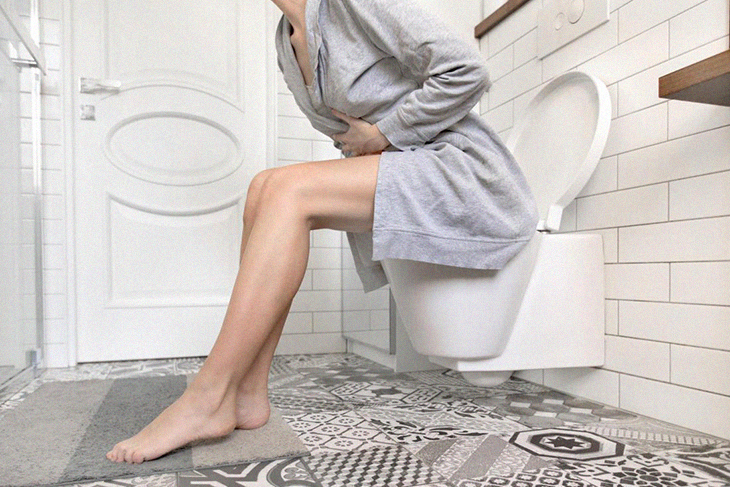
You might feel concerned if you find yourself experiencing pain or discomfort when you urinate. To make matters worse, you might be too embarrassed to discuss your problem with anyone.
Also known as dysuria, painful urination covers different types of discomfort that may stem from your bladder, urethra, or perineum. It is actually a rather common affliction, especially in women. The pain varies in level of intensity, whether burning, stinging, itching, or a vague discomfort. It could be caused by a number of things and is usually easily diagnosed by your doctor.
While you should see a physician if you are having any kind of trouble with peeing, you could check out this list to learn about the possible reasons urinating might be so painful.
1. Urinary Tract Infection
One of the most usual causes of painful urination is a urinary tract infection (UTI). This happens when bacteria enters the urinary tract, and it could affect any part including urethra, bladder, ureters, or kidneys.
UTI is one of the most common types of infection, though women are more likely to get it than men. As many 50 to 60 percent of women are at risk of getting UTI in their lifetime, with many of these possibly becoming infected repeatedly. Moreover, they are 30 times more likely to get infected than men. This is because a woman’s urethra, or the small tube that urine travels through on its way out the body, is shorter than the one in a man’s. This means a shorter distance for bacteria to travel to cause an infection.
You would typically only need a urine test to find out if you have a UTI, and treatment usually only requires an antibiotic to be prescribed by your doctor.
2. Bladder Stones
Bladder stones are formed when the minerals in concentrated urine that is retained in your bladder crystallize and form stones. This can cause irritation in your bladder and may block the flow of your urine. This results in pain when you pee, one of the most common symptoms of bladder stones. Men over 50 years of age are at a higher risk to develop this ailment.
Small bladder stones are often passed on their own, but if they are bigger and your symptoms are more severe, you should consult your doctor for possible treatment.
3. Yeast Infection
A yeast infection could cause painful urination, though you are more likely to feel an itch in the area than pain. Nevertheless, consider this as a possible cause if you are suffering from dysuria, especially if you are a woman. Women are more likely to get it than men, with three out of four women at risk of yeast infection. Though it is much less common in men, they can still catch it, which would cause the tip of the penis to become irritated and swollen.
Yeast infections are usually treated with an over-the-counter antifungal cream, but your doctor might also prescribe oral medication.

4. Painful Bladder Syndrome
A less common cause of painful urination, and more difficult to diagnose, is interstitial cystitis (IC), better known as painful bladder syndrome. It is a chronic bladder problem wherein your bladder holds your urine even after your kidneys have filtered it out. You usually end up needing to urinate more often, with only small amounts coming out at a time.
Women are at a greater risk to be diagnosed with the condition, making up as much as 90 percent of IC patients. You are more likely to start experiencing symptoms in your 40s, with the risk going up as you get older.
Painful urination is just one of the wide range of symptoms of IC. Sometimes it only gets diagnosed when other possible conditions have been ruled out. IC also varies in severity, and it can affect the quality of your life if it is left untreated.
Unfortunately, there is no cure for interstitial cystitis, but getting proper treatment can help you manage the symptoms and get your life back to normal.
5. Sexually Transmitted Infection
Some sexually transmitted infections (STI) can cause pain during urination. Some of these include gonorrhea, chlamydia, and genital herpes. If you have been sexually active, you could consider this as the possible root for your peeing problems. Watch out for other symptoms, such as pelvic pain, discharge from your urethra, small red bumps, or oozing ulcers. Simply walking or sitting could be painful as well, and you might even experience flu-like symptoms.
While you might feel embarrassed about the whole ordeal, if you suspect that you have an STI, you should get tested right away to be certain. If you are diagnosed to have one of these infections, it is important to contact any partners to inform them about it. You will also need to abstain from sex while getting treated until you are cleared of the infection.
6. Prostatitis
If you are a man and urinating becomes painful, take note of other symptoms because you could possibly be suffering from prostatitis or an inflamed prostate gland. This happens when your prostate becomes infected when bacteria reaches it through your urinary tract. This is likely your condition if you are also feeling pain when ejaculating, or having difficulty getting it out.
Should you be diagnosed with prostatitis, you would probably need to take antibiotics or other medications to treat the infection and relieve the pain.

7. Allergic Reaction
Contact dermatitis, or an itchy red rash caused by an allergic reaction, can also affect you down there. If you suddenly find yourself itching and experiencing pain when peeing, you might be allergic to something new that you are using. The vagina can be rather sensitive to products like soaps, shower gels, shaving creams, wipes, laundry detergents, and lubricants.
Try to pinpoint what product might be the culprit so you could stop using it. If you find yourself prone to allergic reactions to such products, try using fragrance-free options and gentler formulations. But if you are having trouble getting rid of the pain and itching, or if they are becoming too bothersome, consult your doctor in case you need medication to treat these symptoms.
8. Skin Condition
Skin conditions can affect any part of your skin, including down there. This can cause pain when you urinate or even when you engage in intercourse. Examples of these conditions include eczema, lichen sclerosus, and lichen planus.
Eczema shows up as sore red skin and causes a constant itch and pain when it is located in your genital area. While also extremely itchy and painful, lichen sclerosus manifests as white, shiny skin that if left untreated may even tear and scar. On the other hand, lichen planus causes purplish flat bumps with a white pattern on your skin surrounding them. With this skin condition, you may feel a burning sensation when you pee.
Fortunately, once you get diagnosed, these conditions can easily be managed with topical steroids.
One of these conditions may be the culprit if you feel pain when you pee. While this guide may help you in narrowing down the cause, it is recommended to consult with your physician to make sure you get your condition treated properly.



